An opening or an imperfection in the muscular structure of the wall of the abdomen is called hernia. This abnormality occurs as a congenital defect in the muscle or it can be developed from an acute or repetitive muscle stress or strain. Because of the hole in the muscle, the pressure in the abdomen has a tendency to push the contents, or abdominal organs and surrounding tissue through the abnormality. This causes the swelling of the abdominal wall.
Types of Hernia
Hernias can attack almost anybody. Hernias occur to men and women, regardless of the race and age. It's not improbable that you or somebody you know will experience hernia and have to undergo surgery to repair it. Hernias can be categorized according to their anatomical location. But, some of the most common hernias are abdominal hernia, diaphragmatic hernia, pelvic hernia, anal hernias, and intracranial hernia. Incarceration is an intense complication of hernia which emerges from the trapping of tissues in the hernia. Trapped or restrained tissues may have their blood supply blocked, which may cause the damage or death of the tissue. The treatment of an incarceration very often includes surgery.
Symptoms of Hernia
Most common symptoms of a hernia are pain, vomiting and discomfort, but swelling of the skin of the abdominal wall is also possible. A sportsman's hernia is a syndrome connected with chronic flank pain in athletes and a dilated superficial ring of the inguinal canal, although the true hernia is not really present. Throughout the surgery, a hernia sac is eliminated and a couple of stitches may be necessary to close the hole of the inguinal canal nearest the abdominal cavity.
Most hernia repairs are done as emergent surgery. Anesthesia can be local, spinal, or general. When it comes to adult hernia operations, synthetic patches or mesh are becoming more and more used. Laparoscopic hernia surgery may have some supremacy over the open surgery in certain situations, but it has a higher risk of more serious complications.
Recovery Period After Hernia Surgery
If general anesthesia is used, it may cause the patient to feel different for some 2 or 3 days. When the patient wakes up from the anesthesia, he or she will be able to drink small amounts of liquid. If the patient doesn't feel sick, he can begin eating regular foods.
The patient should regularly wash his hands before and after touching the incision site. Also, the patient should stay away from wearing tight or rough clothing. The average time to return to work is 14 to 21 days. The medicine that the patient will need after the operation is for pain control.
- This study includes 97 patients who underwent elective open inguinal hernia repair. Age ranged from 20 to 84 years with a median age of 65 years. The absolute majority of interviewed patients were male, 87 patients (90%) while 10 patients (10%) were female.
- In most cases (43% of patients), a senior doctor explained to the patients about the procedure and information about post-operative care and return to work. Different advice was given to the patients where 31% (30 patients) were advised to return to work after 5-6 weeks, 16% (15 patients) were advised to return to work after more than 6 weeks, 13% (13 patients) were advised to return to work after 2-3 weeks, 9% (9 patients) were advised to return after 3-4 weeks and 5% (5 patients) were advised to return to work after 1 week.
- Patients who were given advice by nurses were advised to return to work after inguinal hernia repair after more than 6 weeks in 58% of patients (11 patients) while 16% (3 patients) were advised to return to work after 2-3 weeks and 4-5 weeks. Similar advice was given by doctors (excluding consultants) where 51% (23 patients) were advised to return to work after more than 6 weeks, 16% (7 patients) were advised to rest for 2-3 weeks, 11% (5 patients) were advised to return to work after 1 week, 9% (4 patients) were advised to return to work after 4-5 weeks and 13.3% (6 patients) do not remember the information given by doctors (excluding consultants). Those patients who were given advice by their consultant were advised to return to work after more than 6 weeks in 43% (6 patients), 2-3 weeks in 29% (4 patients), 4-5 weeks in 14% (2 patients). No patients were advised to return to work by their consultant after 1 week while 2 patients (14%) do not remember the information.
- The majority of the patients interviewed were retired so 60 patients (62%) did not return to work after hernia repair which included retired and unemployed patients. Taking into consideration, the rest of patients, 51%% (19 patients) returned to work after more than 6 weeks, 24% (9 patients) returned to work after 2-3 weeks, 19% (7 patients) returned after 4-5 weeks and 5% (2 patients) returned after 1 week.
- The majority of patients did not return to work as advised by health care professionals as 21.6% (8 patients) returned to work before expected while another 27% (10 patients took more time to recover after inguinal hernia repair than expected.
- When taking into consideration self-employed patients 38.9% (7 patients) took less time to return to work than advised, 33.3% (6 patients) took more time to return to work than advised while 27.7% (5 patients) took the same amount of rest after hernia repair as advised. Regarding employed patients 47.3% (9 patients) took the advice given and returned to work at the same time they were advised to while 26.3% (5 patients) took less time of rest than advised and more time to return to work respectively.
- Regarding patients who carry out manual work (73% of employed patients), 37% (10 patients) returned to work as per advice given, 33.3% (9 patients) took longer to recover than advised while 29.6% (8 patients) returned to work before the time they were advised to. When taking into consideration patients with office work (27% of employed patients), 50% (5 patients) returned to work as per advice given, 30% (3 patients) returned to work earlier than advised while 20% (2 patients) returned to work later than advised.



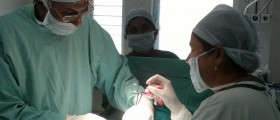




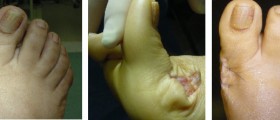


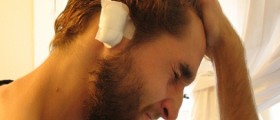

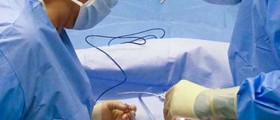

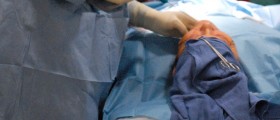


Your thoughts on this
Loading...